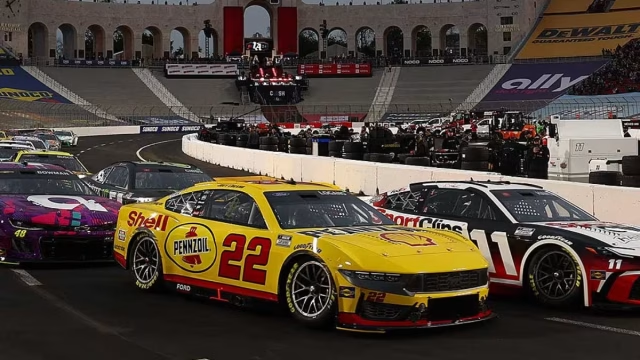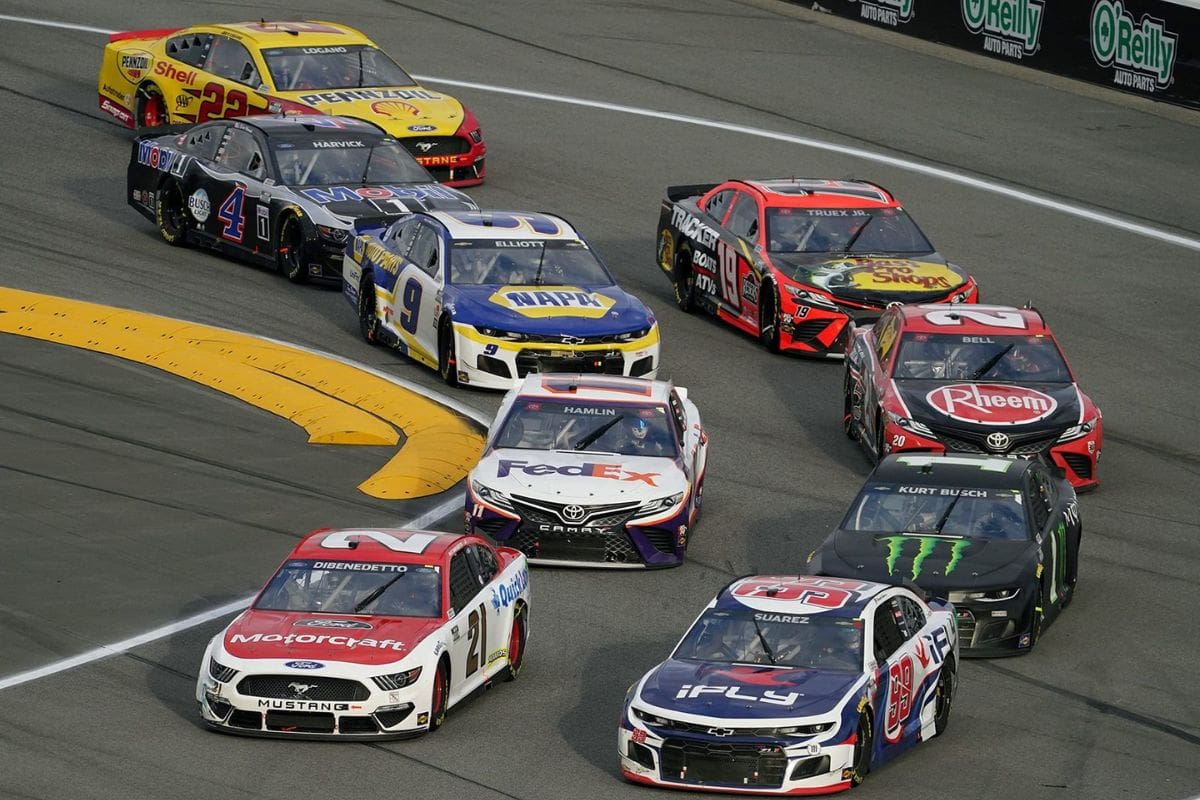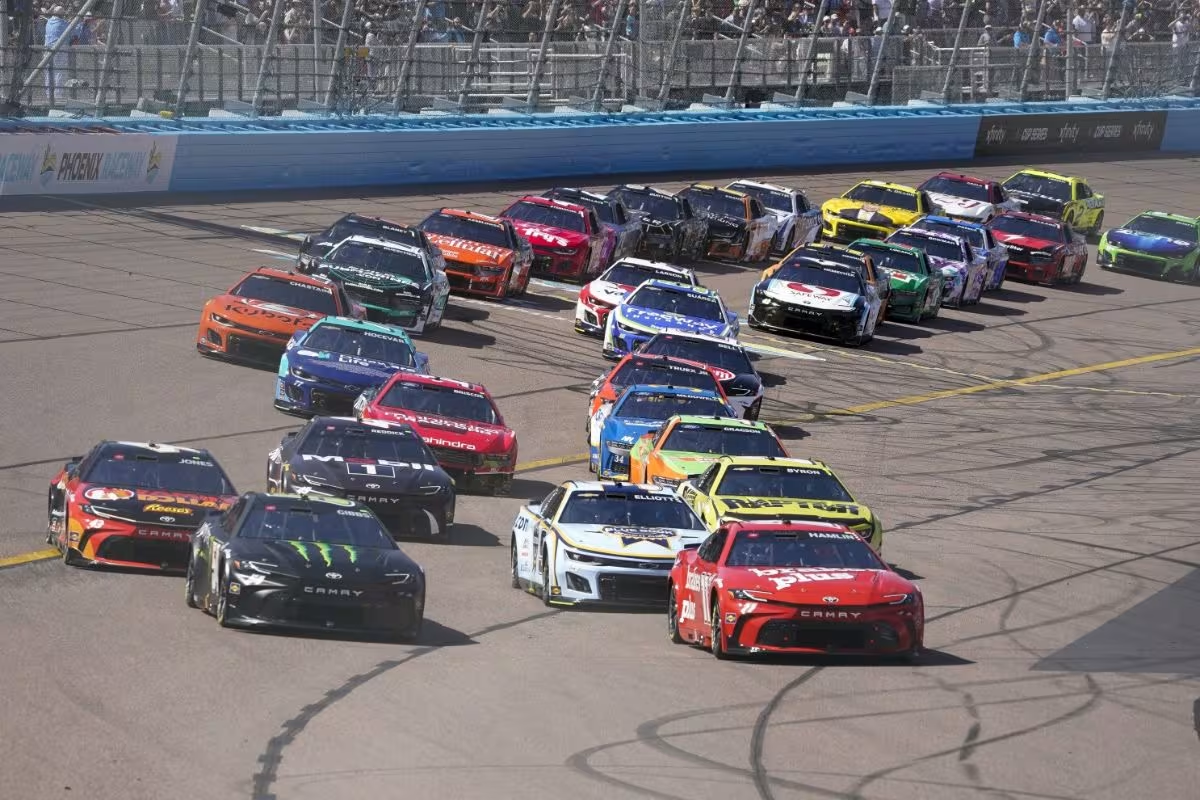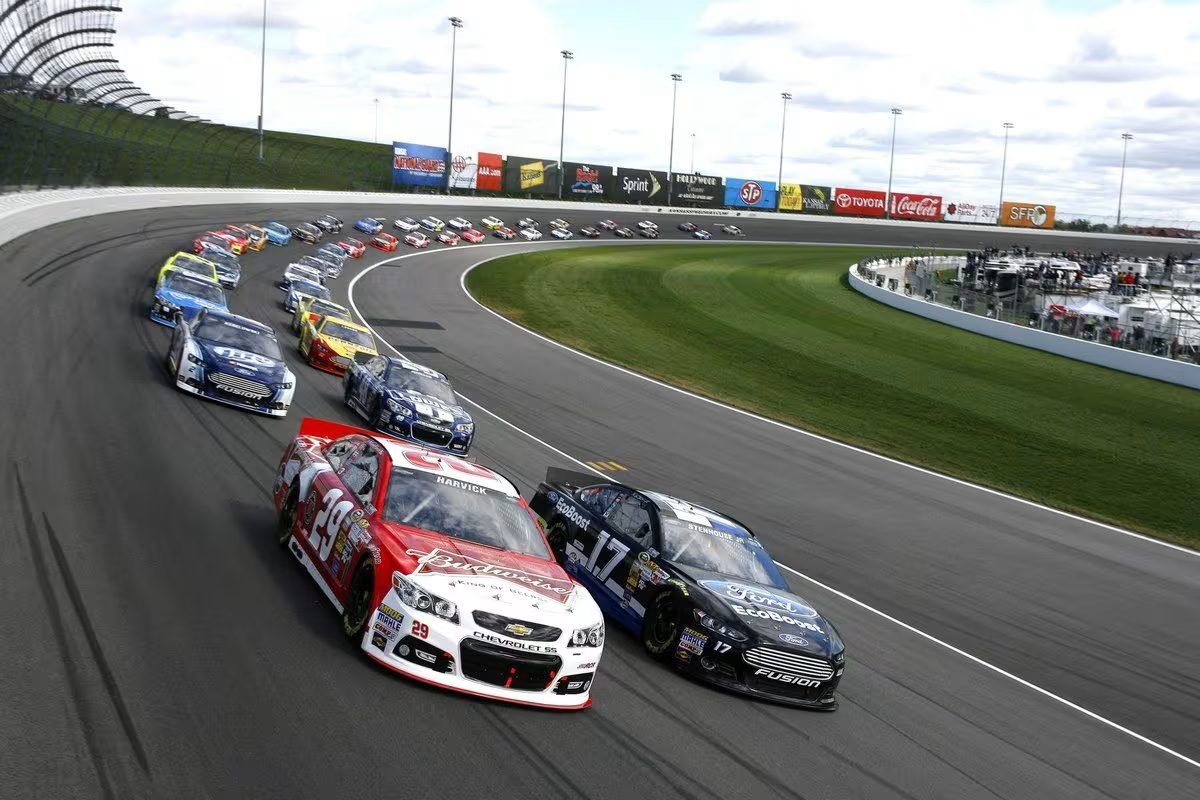Chevrolet’s Performance Dilemma: Chevrolet‘s discontinuation of the Camaro presents a critical test for its identity in NASCAR. This shift may impact branding and fan engagement, as the emotional ties to the Camaro have strengthened the brand’s presence in the sport. While Chevrolet’s performance has historically been strong, the lack of a competitive body design raises concerns amidst rivals like ford/”>Ford and toyota/”>Toyota. Innovation in car design and effective strategies will be crucial to maintain success. The outcome of this change could redefine Chevrolet’s legacy in NASCAR and its future path in the sport. Exploring the further reveals deeper insights.
Key Highlights
- Chevrolet’s discontinuation of the Camaro necessitates a strategic rebranding to maintain fan engagement and competitive identity in NASCAR.
- The introduction of alternative models like the Chevrolet Corvette will be crucial in redefining Chevrolet’s presence in the sport.
- Innovations in body design are essential for Chevrolet to remain competitive against advancements from rival manufacturers like Ford and Toyota.
- Performance must evolve as Chevrolet adapts to the changing dynamics of the NASCAR landscape to take its competitive advantage.
- The outcome of the 2024 season will significantly impact Chevrolet’s legacy in NASCAR, influencing future branding and performance strategies.
Chevrolet’s Shift Away from Camaro Branding
How will Chevrolet navigate the challenges posed by the discontinuation of the Camaro in NASCAR? The impending absence of Camaro branding in the NASCAR Cup Series raises critical questions about Chevrolet’s tactical direction in motorsport. The Camaro has long been synonymous with the brand’s racing identity, embodying performance and innovation on the track.
With General Motors‘ decision to cease production after the 2024 model year, Chevrolet faces both a challenge and an opportunity to redefine its NASCAR presence. The alteration necessitates a thorough evaluation of potential alternatives. One option may be to pivot to another existing model, such as the Chevrolet Corvette, which carries a legacy of high-performance engineering.
However, this shift would require considerable adjustments in branding and marketing strategies to maintain fan engagement and brand coherence. In addition, the integration of a new model into the NASCAR framework presents logistical challenges, including compliance with the sport’s stringent technical specifications.
Moreover, Chevrolet must consider the emotional connection that fans have developed with the Camaro. This connection, cultivated over years of racing heritage, cannot be easily replaced. As a result, an effective communication strategy will be big to convey the rationale behind this alteration and to Chevrolet’s commitment to performance and innovation.
Ultimately, how Chevrolet addresses these dynamics will greatly influence its long-term viability and competitiveness in NASCAR. The decision will require a delicate balance between embracing change and honoring the legacy of the Camaro while aiming to foster a new chapter in Chevrolet’s storied racing history.
Current Status of Chevrolet’s NASCAR Branding
Amid the ongoing evolution of NASCAR branding, Chevrolet‘s current strategy reflects a cautious yet deliberate approach as it shifts away from its iconic Camaro. The recent paint schemes exhibited by William Byron, particularly the #24 Chevy adorned with the Raptor branding, signal a crucial moment for the automotive giant. Instead of featuring the Camaro, the rear bumper simply displays the Chevrolet name, hinting at a changing phase where the brand grapples with its identity in the competitive NASCAR landscape.
Rival manufacturers Toyota and Ford have made bold moves with their 2024 body designs. The introduction of the Camry XSE and the Dark Horse Mustang highlights a commitment to innovation and brand differentiation, compelling Chevrolet to reassess its positioning. The absence of a new car to promote raises questions about the future direction of Chevrolet’s NASCAR branding and its ability to maintain relevance amid fierce competition.
Furthermore, the potential design of a new Chevrolet body remains uncertain, leaving fans and investor similar in anticipation. This lack of clarity could impact both consumer perception and team morale as they await definitive guidance from General Motors.
As the NASCAR environment continues to evolve, Chevrolet finds itself at a crossroads, tasked with balancing legacy and modernization. The decisions made in the coming months will be critical, not only for the brand’s immediate presence in NASCAR but also for its long-term sustainability in a rapidly changing motorsport arena.
Performance Implications and Competitor Dynamics
The competitive landscape of NASCAR hinges not only on driver skill but also on the intricate dynamics of car performance, where body design plays a significant role. The debate surrounding Chevrolet’s performance and its ongoing rivalry with Ford highlights the importance of these factors in shaping championship outcomes.
- Impact of Body Design: A new body can improve aerodynamics, essential for speed and handling on the track.
- Performance Consistency: Despite the lack of a new body design this year, Chevrolet drivers like Kyle Larson have continued to secure victories, demonstrating their adaptability.
- Competitor Advancements: The introduction of a new body design by Penske Fords has shifted competitive dynamics, as they capitalized on the Next-Gen car’s capabilities to achieve back-to-back championships.
- Driver Skill vs. Equipment: The ongoing success of drivers in the Chevrolet camp suggests that while equipment is important, exceptional talent can mitigate some performance disadvantages.
In this evolving landscape, the balance between innovation in car design and driver skill will define future success.
Chevrolet’s recent performance, particularly under the leadership of Hendrick Motorsports, illustrates resilience. However, the implications of not updating vehicle design may lead to vulnerabilities as Ford’s advancements continue to gain traction.
As the season progresses, the interplay between these factors will be significant for Chevrolet, determining whether they can reclaim their dominant status in a fiercely competitive arena. The tough, and the choices made now will throughout the remainder of the season.
Insights from Experts and Future Considerations
As Chevrolet navigates the shifting dynamics of NASCAR, expert insights reveal an urgent need for innovation in body design to maintain competitiveness against rivals like Ford and Toyota. The removal of the Camaro logo from the race track has sparked discussions about the necessity for Chevrolet to adapt and evolve its vehicle offerings. Brake Hard’s commentary emphasizes the importance of tweaking the current body design to better align with the advancements made by competitors.
“So it’s not a bad body by any means, but it certainly is a body that Chevrolet would love to tweak on and make some changes to. Especially seeing what both Toyota and Ford have done but they can’t do it.”
“Now, of course, they can introduce a hybrid sports car or even an electric sports car like the current Toyota Camry that is racing in NASCAR. So from a marketing standpoint, they are marketing the nameplate and brand, not so much like, hey this is the performance car; maybe that’s something Chevrolet looks at as well. But for now, it’s gonna be the Camaro body, not just actually the Camaro.”-(brake hard)
The automotive landscape is shifting towards hybrid and electric vehicles, prompting Chevrolet to contemplate integrating these technologies into their NASCAR lineup.
Chevrolet’s path forward must involve tactical decisions regarding body design, technology integration, and brand messaging. The current reliance on the Camaro body may offer a short-term solution, but long-term success will depend on a robust response to the evolving demands of both the racing community and the broader consumer market. The call for innovation is not just a challenge but a crucial opportunity for Chevrolet to redefine its legacy in NASCAR.
Make sure to pick up your 2025 @AxaltaRacing diecasts today: https://t.co/PgZzohcMhT pic.twitter.com/dOAWG9aqQp
— Hendrick Motorsports (@TeamHendrick) September 26, 2024
Chevrolet’s Performance in 2024 and Future Outlook
Chevrolet’s performance in the 2024 NASCAR season presents a compelling narrative of resilience and tactical adaptation. With the Camaro body achieving notable success this season, it has outperformed its competitors, securing 12 Cup Series wins. This edge is particularly impressive given its older design compared to the newer models from Ford and Toyota.
As we analyze Chevrolet’s current standing and future outlook, several key factors emerge:
- Body Design Superiority: The Chevy Camaro’s aerodynamic advantages have proven difficult for Ford and Toyota to surpass.
- Competitive Landscape: Despite their success, the increasing threat posed by Penske Ford’s groundbreaking strategies could challenge Chevrolet’s dominance.
- Driver Performance: The effectiveness of Chevrolet drivers in executing race strategies will be vital as the playoffs approach.
- Manufacturer Regulations: NASCAR’s regulatory framework guarantees that no competitor can exceed the performance metrics established by Chevrolet’s design, cementing its status as a benchmark.
Looking ahead, the question remains: will Hendrick Motorsports (HMS) effectively counter the evolving strategies of Ford?
Or could a Toyota, led by Denny Hamlin, disrupt Chevrolet’s path? As the season progresses, Chevrolet must continue to refine its performance and adapt its tactics to maintain its competitive edge.
“Denny Hamlin has pointed this out as well that the Chevrolet is the best body that is out there. NASCAR won’t let either manufacturer, either Toyota or Ford to go beyond what Chevrolet has, especially when it comes to downforce. So whatever Chevy has that is the kind of box you can work in, you can never be better than what the Chevy Camaro body is.”-(brake hard)
The ability to navigate these challenges will not only determine the outcome of the 2024 season but also shape Chevrolet’s legacy in NASCAR’s storied history.
News in Brief: Chevrolet’s Performance Dilemma
The possible end of the Chevrolet Camaro in NASCAR brings up important questions about how Chevrolet will compete in racing. As they face this change, it’s crucial to consider how it might affect their brand, their connection with fans, and the overall market. Chevrolet’s future in NASCAR will depend on their ability to adapt and innovate. They need to keep their performance strong and maintain their legacy to stay relevant with both racers and fans in a quickly changing environment.
ALSO READ: Fans Slam Chevrolet for RCR Favoritism After Rookie Betrays Kyle Busch



